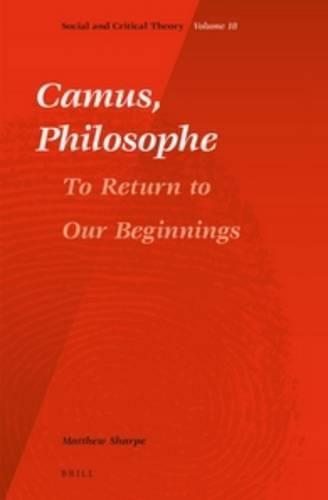Readings Newsletter
Become a Readings Member to make your shopping experience even easier.
Sign in or sign up for free!
You’re not far away from qualifying for FREE standard shipping within Australia
You’ve qualified for FREE standard shipping within Australia
The cart is loading…






Camus, Philosophe: To Return to Our Beginnings is the first book on Camus to read Camus in light of, and critical dialogue with, subsequent French and European philosophy. It argues that, while not an academic philosopher, Albert Camus was a philosophe in more profound senses looking back to classical precedents, and the engaged French lumieres of the 18th century. Aiming his essays and literary writings at the wider reading public, Camus’ criticism of the forms of ‘political theology’ enshrined in fascist and Stalinist regimes singles him out markedly from more recent theological and messianic turns in French thought. His defense of classical thought, turning around the notions of natural beauty, a limit, and mesure makes him a singularly relevant figure given today’s continuing debates about climate change, as well as the way forward for the post-Marxian Left.
$9.00 standard shipping within Australia
FREE standard shipping within Australia for orders over $100.00
Express & International shipping calculated at checkout
Camus, Philosophe: To Return to Our Beginnings is the first book on Camus to read Camus in light of, and critical dialogue with, subsequent French and European philosophy. It argues that, while not an academic philosopher, Albert Camus was a philosophe in more profound senses looking back to classical precedents, and the engaged French lumieres of the 18th century. Aiming his essays and literary writings at the wider reading public, Camus’ criticism of the forms of ‘political theology’ enshrined in fascist and Stalinist regimes singles him out markedly from more recent theological and messianic turns in French thought. His defense of classical thought, turning around the notions of natural beauty, a limit, and mesure makes him a singularly relevant figure given today’s continuing debates about climate change, as well as the way forward for the post-Marxian Left.